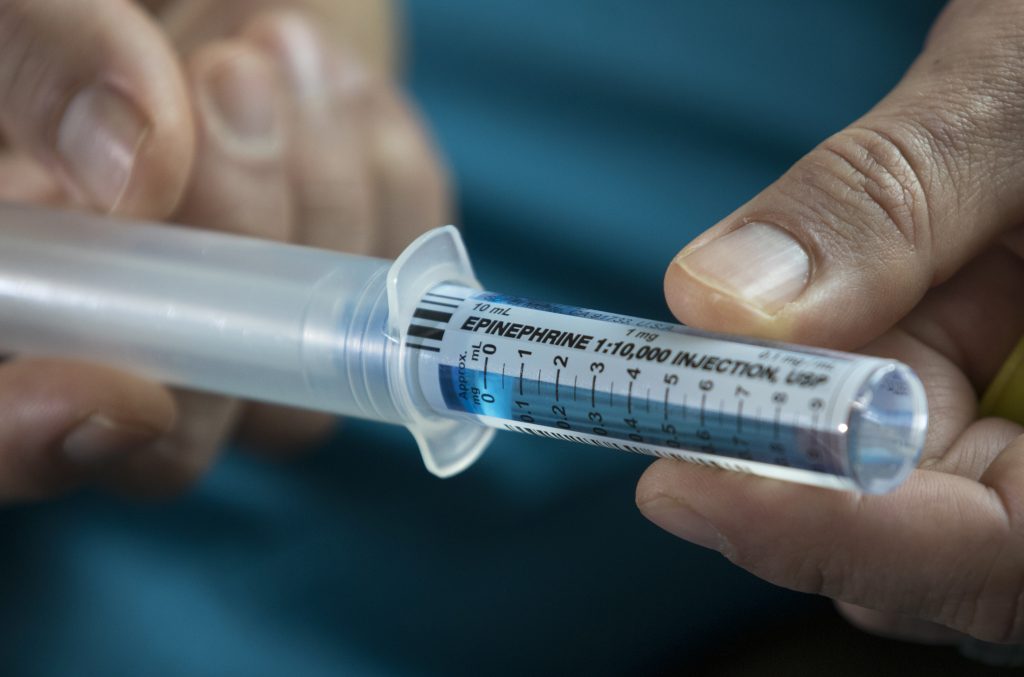What is epinephrine (adrenaline)?
Epinephrine (or adrenaline) is a neuro-hormone that is produced and secreted by the medulla (inner part) of the adrenal glands in direct response by nervous stimulation. Epinephrine is not only a hormone, but it is also one of the important neurotransmitters that is used by the nervous system to send messages to other nerves and muscle tissue.
Epinephrine the hormone, is produced by the adrenal glands when the body is faced with a stressful (or even life-threatening) situation that causes them to either stand and fight or get away – this is called the “flight or flight” response, which is the way humans react when they are frightened and possibly in danger.
Epinephrine causes blood pressure to raise, the heart rate to beat faster, increased metabolism and blood glucose levels, increased energy production and blood flow to the extremities is also increased.
Important epinephrine (adrenaline) facts
- Most cells of the body are affected by epinephrine (when it is stimulated to be produced)
- Epinephrine is a neurotransmitter of the adrenergic nervous system
- The amino acid tyrosine is a precursor which is necessary for the synthesis of Epinephrine
- Cholesterol is also required to synthesize Epinephrine
- Constant levels of stress can elevate Epinephrine levels, which may not be advisable over the long term
- Exercise burns off excess epinephrine (as well as allowing muscles to reduce tension and stress, by providing an outlet for the release of excess energy)
- Epinephrine, in the short term, to deal with a dangerous or stressful situation is necessary and beneficial as it makes you feel more alert, awake and aware
- Epinephrine is an excitatory neurotransmitter involved with alertness and mental focus
- Epinephrine stimulates the body systems to prepare to “fight or flight”, which is a well-known human preservation reaction to any dangerous situations
Why epinephrine (adrenaline) is important
Epinephrine is injected to treat life-threatening allergic reactions caused by a variety of substances: chemicals, fods, insect bites, latex, medication and other items.
Symptoms of allergic reactions include:
- Diarrhoea
- Hives
- Itching
- Loss of bladder control
- Low blood pressure
- shortness of breath
- stomach cramps
- swelling
- wheezing
Epinephrine as a medication is called a sympathomimetic agents, which works by relaxing the muscles in the airways and also by tightening blood vessels to allow recovery from the allergic reaction.

